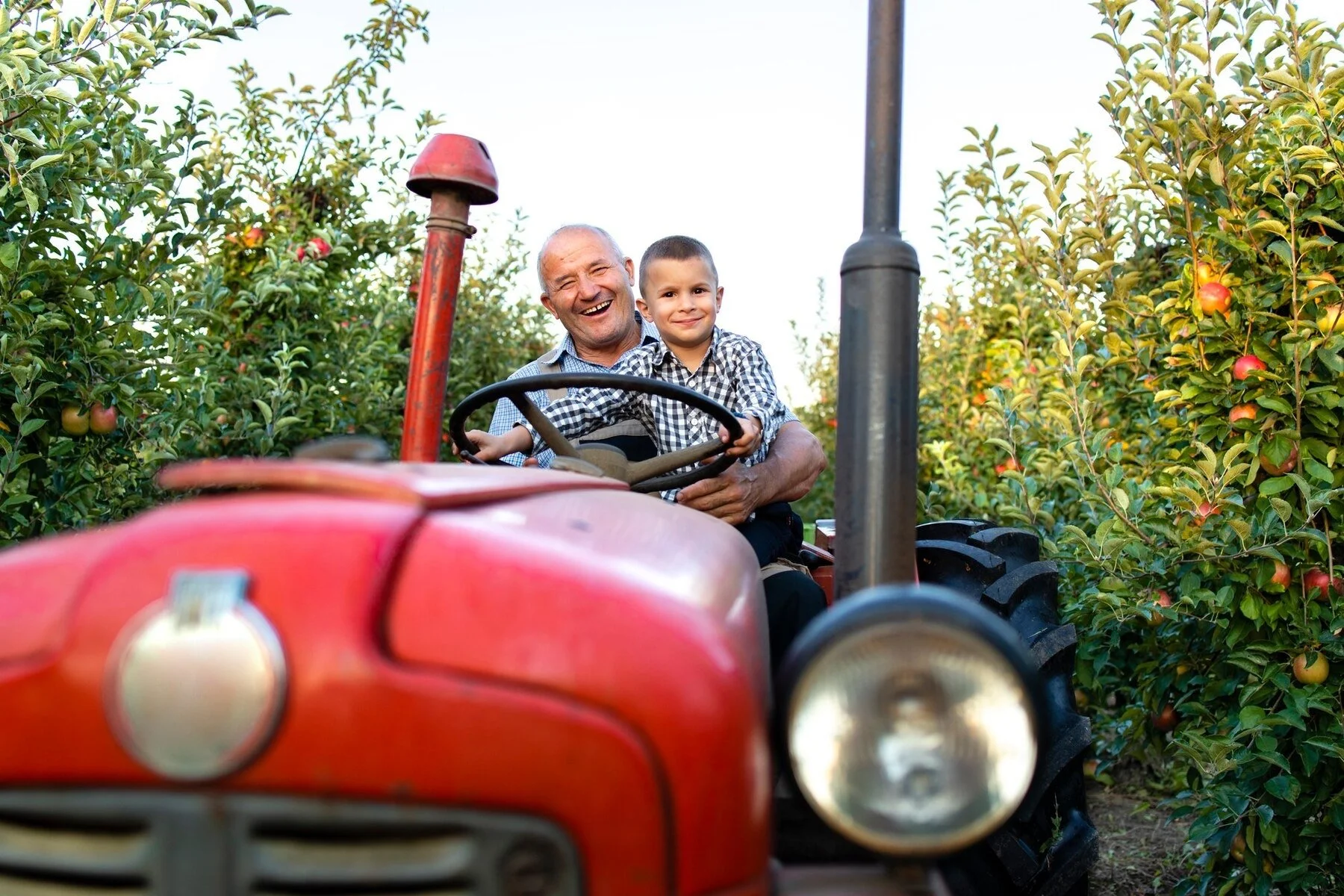A little boy spent a week with his grandparents who were farmers. Everyday the little boy sat on his grandpa's lap as they drove out on the tractor to work in the fields. The little boy's grandparents told him how much help he had been and that they couldn't wait for him to be with them again. The little boy was so convinced that he had been such an enormous help that he prayed for his grandparents at a church prayer meeting, "Dear God, please help my grandparents with all the work they have to do since I am not there. They need me so badly."
Racism : A Personal Story
A few years ago Lisa and I visited New York City. It's an amazing place; truly the melting pot of hundreds of nationalities and cultures. Nice people helped us find our way through crowded, chaotic, fast moving subways and busy streets. We visited The Statue of Liberty, Ellis Island, the 9-11 Memorial and Museum, the Metropolitan Museum of Art, The American Museum of Natural History, Central Park and more. I could tell many stories after reflecting on our trip but one stood out to me. It's a humbling memory yet it continually calls me to be more than I was that day.
The Art of Loving Well—Part 1
The Art of Loving Well—Part 2
In our previous blog we discussed how love, at its core, is a motive. Yet we can be so self-deceived about our motives. We can think that our motive is to give so the other can flourish, yet really be giving in order to get something in return. In order to truly love well, we must first be ruthlessly honest about our own hearts so that our love is not hindered by self-centeredness. Will our love ever be completely free of impure motives? Quite likely not, in this life, but let’s not let that hold us back from loving as purely as we can to the best of our knowledge and self-awareness.
Once we have considered the state of our own heart and motives, the art of loving well requires considering the object of our love. What is most deeply needed from us that would really help them to grow, flourish, and be the best that they can be? What from us would be a cup of cold water to their thirsty soul? What would most effectively counter the lies that draw them away from God and point them to the truth?
Indeed, these are not always easy questions to answer. However, we have found that Scripture gives us two categories that are always helpful in thinking about how to love well. Those categories are GRACE and TRUTH. We are told that these two elements were what Jesus was filled with and what came to us through him who was Love Incarnate (John 1:14, 17). Therefore, it makes sense that when they come to others through us we will be loving well.
So how well do these two elements characterize the way you love as you think about the needs of others? So often we struggle to blend these two things in a way that genuinely shows the love of Christ. Left to ourselves, we might be great truth tellers, being quick to correct or confront. However, we leave people feeling shamed, rejected, and judged and their souls parched for the water of acceptance, grace, and kindness. Others of us may be great grace givers. We easily affirm, accept, and meet practical needs yet leave people to the bondage of lies and sin.
The reality is that true, biblical, artful loving will always call us out of our comfort zone. We must be willing to go where it is difficult, where it is a sacrifice, and where it is risky in order to love others well. For some of us that means finding the courage to speak truth, to confront or say “no” to someone in addition to being kind, gentle, and compassionate. For others, it means learning to show tenderness and compassion; seeing life from the other's perspective while at the same time bringing truth in with gentleness and patience.
It is only as we depend upon the indwelling power of the Holy Spirit that we will be able to exhibit both GRACE and TRUTH as we seek to love others well. There will be moments when what others need most is grace, but there will always come a time for truth. There will be moments when what others need most is truth in order to displace lies, but that truth must always be seasoned with mercy and kindness.
In the end, it is only as we ourselves have experienced both GRACE and TRUTH in the love of God will we be able to pass that on to others. We cannot give what we have not received. But when we have received it, we have much to give that can bless and cause others to bloom and flourish in our presence.
Consider these questions as you seek to grow in the art of loving well:
What aspect of God’s character do you need to experience more of in order to grow in loving well?
Are you naturally more of a truth teller or a grace giver?
How do you need to grow in being more balanced?
Who in your life could flourish and grow more if you offered them more of what they needed with both truth and grace?
Becoming Little Children
A little boy spent a week with his grandparents who were farmers. Everyday the little boy sat on his grandpa's lap as they drove out on the tractor to work in the fields. The little boy's grandparents told him how much help he had been and that they couldn't wait for him to be with them again. The little boy was so convinced that he had been such an enormous help that he prayed for his grandparents at a church prayer meeting, "Dear God, please help my grandparents with all the work they have to do since I am not there. They need me so badly."





